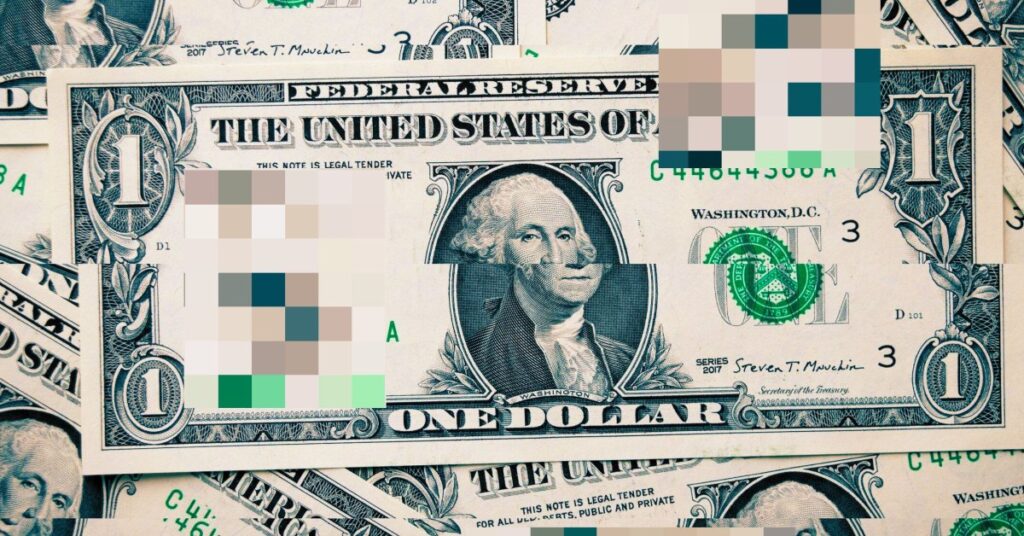On Wednesday, a stablecoin invoice referred to as the STABLE Act complicated in the course of the Space Monetary Services and products Committee, expanding the possibility that Congress will go a legislation this occasion cementing stablecoins’ as a world economic device. Proponents argue that stablecoins aid the U.S. saving the worldwide centrality of the buck, date permitting family international to transact extra freely, affordably and securely.
However date stablecoin regulation has gained bipartisan backup, it has additionally confronted focused pushback, specifically from Democrats inquisitive about systemic dangers and battle of hobby—particularly because the Trump crowd’s crypto corporate introduced the creation of its personal stablecoin. Critics additionally warn of any other doubtlessly important facet impact: that such regulation may just not hidden the door for Obese Tech avid gamers like Meta, X, and Amazon to build their very own privatized modes of cash, additional consolidating company energy.
“This is being framed as a crypto bill, and in some ways it is. But it has not reached most people’s radar that its biggest beneficiary is likely to be large tech platforms,” says Hilary Allen, a mentor at American College Washington Faculty of Legislation and a vocal crypto skeptic in D.C.
Learn Extra: What are Stablecoins?
Each the Space and Senate have handed stablecoin expenses—the STABLE and GENIUS Acts, respectively—out of committee. The expenses lay out guidelines for a way stablecoins will probably be regulated, and the volume and sorts of reserves stablecoin issuers should have readily available. The Space and Senate will now have the option to reconcile the 2 expenses within the hopes of having a unified invoice onto President Trump’s table through the summer season. A number of banks, together with Bank of America, have expressed hobby in launching their very own stablecoin, must a legislation go.
However below the flow language of the 2 expenses, non-financial corporations would additionally be capable to build their very own stablecoins by way of subsidiaries. Age up to now proposed stablecoin expenses opposed non-banking corporations from doing so, neither the STABLE nor the GENIUS Work comprise this kind of provision. Actually, the STABLE Work says that any nonbank can factor a stablecoin so long as they achieve favor from a federal regulator.
Allen says that this may not hidden the door for Obese Tech moguls like Elon Musk and Mark Zuckerberg to build their very own stablecoins. Each have lengthy been within the bills sector—Musk’s X has acquired money transmitter licenses in lots of states, date Fb attempted to establishing its personal cryptocurrency, Libra, in 2019 sooner than facing stiff criticism and regulatory scrutiny.
“These big tech platforms have been very interested in doing payments because they’re in the data collection and monetization business—and payments data is particularly valuable because it shows what you’re actually buying,” Allen says. “The more people’s transactions migrate onto these big tech platforms, that will really beef up what are already incredibly systemically important actors in our society, and put them at the center of our financial system.”
Allen lays out a hypothetical state of affairs by which Amazon problems stablecoins. They may later conceivably scale its utilization amongst Amazon workers and customers, Entire Meals consumers, and Washington Publish subscribers, to the purpose that many family get started depending on stablecoins versus store accounts. “That’s really bad news, because banks take the money deposited with them and loan them out into the economy, while stablecoin reserves just sit there,” Allen says. “So money that had been used productively in our economy is now just sitting with Amazon.”
Stephen Lynch, a Massachusetts Democrat, made a matching level on the STABLE invoice’s markup on Wednesday, threat his colleagues that stablecoins would “compete with bank deposits and undermine the ability of banks to make loans to consumers and main street businesses.”
In October 2023, Rohit Chopra, director of the Shopper Monetary Coverage Bureau below President Biden, warned that if Obese Tech corporations assumed regulate of banking operations, they’d “have a strong incentive to surveil all aspects of a consumer’s transactions.” He added that they may additionally manufacture personalised pricing algorithms.
Arthur Wilmarth, a mentor emeritus at George Washington College Legislation College, tells TIME that family paying for items with stablecoins would deficit fraud coverage. He additionally issues to China as a cautionary story, the place Tencent and Alibaba was dominant bills avid gamers and won undue affect over regulators—which later led Beijing to tighten its grip and acquire sway over the ones companies’ decisionmaking.
On the markup on Wednesday, Rep. Maxine Waters driven for an modification that may uphold the split of trade and banking, claiming that the invoice as written may just permit Elon Musk, Walmart, and others to build their very own currencies. Wisconsin Republican Bryan Steil, a co-writer of the invoice, responded that the modification would top to a “stifling of innovation.” Co-writer French Hill, a Republican from Arkansas and the Space Monetary Services and products Committee Chair, mentioned that he was hoping Congress may just determine a “thoughtful solution” to Waters’ issues date considering a bigger crypto marketplace construction invoice. The modification was once later unwanted.
“I view this stablecoin legislation as presenting a very dangerous opening for big tech to get into banking in a big way,” Wilmarth says. “Once that happens, I think it will be almost impossible to ever close the door again.”

